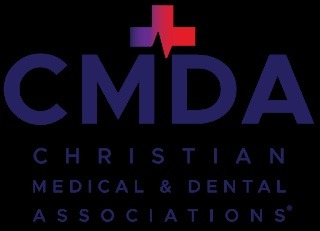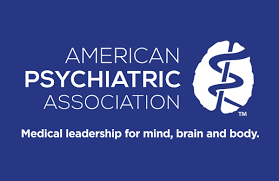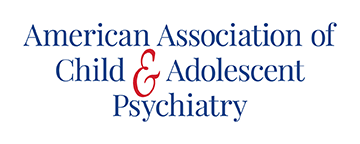After-hours triage: Open
When AI and Ego Replace Listening
Steve Chennankara D.O.
6/16/20253 min read


A woman in her early 30s contacted her primary care physician (PCP) about sleep issues—restlessness and trouble staying asleep—caused by a major life transition. She was clear: this was new, stress-related, not chronic insomnia. She had experienced this about five years back in the context of a cross-country move and that episode lasted two weeks. She was following sleep hygiene.
The PCP formulated that her anxiety was caused by sleep disorder and prescribed ramelteon, a drug suited for circadian rhythm issues. No mention of adjustment disorder. No discussion of her life transition.
When she followed up, reporting no improvement and day time grogginess, she asked about short-term hydroxyzine, suggested by her psychiatrist friend. The PCP’s response? A brief "okay" followed by a generic AI formulated warning about anticholinergic drugs and dementia risk—irrelevant for her age and short-term use. The message closed with a comment that: If her sleep issues persist, a referral with a sleep specialist would be made to try to determine the ‘root cause’ of her insomnia.
This interaction wasn’t just unhelpful—it was harmful, not even considering the wrong initial formulation and medication choice. Here’s why:
• Nocebo effect: Throwing out non-causal, irrelevant side effects (like dementia risk) for a medication in a context where it doesn’t apply can create unnecessary fear.
• Amplified anxiety: Telling someone already grappling with anxiety that their medication might cause dementia is a surefire way to worsen their mental health.
• Non-standard care: Generic AI warnings without clinical contextualization have no place in patient communication.
• Ego-driven response: The PCP’s dismissive tone suggests feeling defensive about the patient’s input rather than embracing collaboration.
• Failure to listen: Threatening a sleep study to "find the root cause" ignores the patient’s clear explanation that stress from a life transition was the trigger.
• Misuse of referrals: Situational insomnia is well within a PCP’s scope to manage, yet the reflex was to punt to a specialist.
PCPs receive psychiatric training in residency, including rotations with psychiatrists, but ongoing prescribing habits often influenced pharmaceutical reps, skewing prescribing toward marketed drugs. Often clinicians can be defensive when patients suggest an alternative and sometimes for good reason. Not uncommonly, even mentioning a medication option would send some physicians into a tailspin of the “is this patient drug seeking?” mode.
Overwhelmingly, the time pressures and cognitive load of modern medical practice unfortunately create perfect conditions for these biases to flourish. When you're seeing patients every 15 minutes, there's enormous pressure to quickly categorize and move on to the next case. This can lead to serious diagnostic and treatment errors.
Premature closure is probably the most dangerous - when physicians lock onto a diagnosis too early and stop considering alternatives. The pressure of a busy schedule can push doctors to reach conclusions quickly rather than thoroughly working through the differential diagnosis.
Confirmation bias compounds this problem. Once a physician has a working diagnosis in mind, they may unconsciously seek information that supports their initial impression while overlooking or downplaying contradictory findings. Lab results, imaging, or patient symptoms that don't fit the expected pattern might get rationalized away.
Pattern recognition bias can also be problematic. While pattern recognition is actually a valuable clinical skill that develops with experience, it becomes dangerous when physicians try to force complex or atypical presentations into familiar diagnostic categories. Not every chest pain is a heart attack, and not every headache is tension-related.
Some of the most effective safeguards include deliberately pausing to consider "What else could this be?", using diagnostic checklists or decision aids for complex cases, and fostering a culture where questioning initial impressions is encouraged rather than seen as inefficient. The best clinicians I've observed maintain what's called "diagnostic humility" - staying open to being wrong even when they feel confident.
Misused AI and defensive communication create care that’s technically safe but emotionally and clinically tone deaf. Patients want to be heard, not dismissed with generic warnings or unnecessary referrals.
A Better Way: Collaborative Care (CoCM)
The Collaborative Care Model (CoCM), developed by the University of Washington’s AIMS Center and endorsed by the American Psychiatric Association, integrates behavioral health into primary care. PCPs, supported by care managers and psychiatric consultants, manage mental health concerns effectively, improving outcomes and trust.
Innkeeper’s Care brings CoCM to clinics with:
• Embedded behavioral health care managers
• Psychiatric consultation and chart review
• Shared registry for measurement-based care
• Collaboration that respects each patient’s story
PCPs and clinic leaders can transform care with evidence-based integration. Learn how Innkeeper’s Care can help:
➡️ https://innkeepercare.com/solutions
Let’s harness AI to amplify our empathy, not eclipse it. Let’s choose humility over ego. Medicine demands we see the person before the problem—every time.
Contact
Connect
Call: (817) 518-4028
© 2025. All rights reserved.
Location Details
Address
Ste 105, 5004 Thompson Terrace, Colleyville, TX, 76034






Fax: (817) 259-2614